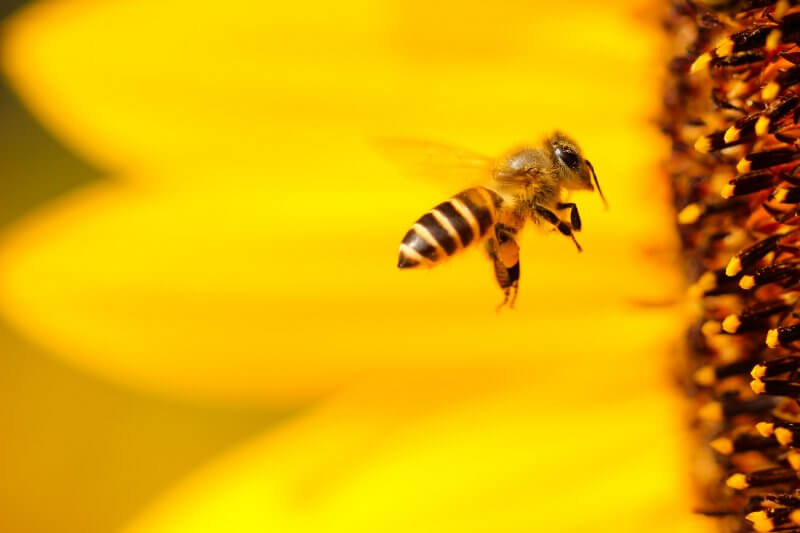Deputy Editor Giorgia Guantario takes a look at how Oracle and The World Bee Project are trying to solve the worrying decline in bees’ population by using technology.
Next time you have avocado on toast at your favourite brunch spot, you might want to reconsider the importance of bees. These small and often annoying insects are crucial to pollination, the process behind plants fertilisation and production of seeds, and behind many of the crops in our food chain. According to the British Beekeeping Association, one in three mouthfuls of food depends on these pollinating insects.
Since the late 1990s, bees have started to mysteriously and suddenly disappear, with high rates of decline in honeybee colonies. A study by the University of Strathclyde showed that the number of honey bee colonies fell by 16 percent in the winter of 2017-18, with more than 89 thousand colonies out of over half a million disappearing due to a combination of circumstances, including various effects of weather conditions, unsolvable problems with a colony’s queen, and natural disaster.
The decline in bees’ population is a threat to the global food supply, and subsequentially, to humanity’s existence.

In the face of this challenge, the tech community has come together to solve one of the world’s most pressing threats – Oracle has been leading this important mission by partnering with The World Bee Project CIC, the first private organisation to launch a global honey bee monitoring initiative to inform and implement actions to improve pollinator habitats, create more sustainable ecosystems, and improve food security and nutrition by establishing a globally-coordinated monitoring programme for honeybees and eventually for key pollinator groups.
Sabiha Malik, Founder and Executive President of The World Bee Project, explained the British social enterprise has been leveraging Oracle Cloud to analyse and create further insights from the beehive data using analytics tools including AI and data visualisation.
“The World Bee Project is using IoT big-data-driven, smart-hive technology to create the very first global hive network and we are the only organisation in the world that is monitoring bees, collecting data and analysing it to understand what’s causing the decline in bees’ population. It’s an extremely serious situation – three quarters of the global food security depends on pollination and at this rate, by 2050 the world will begin running out of food. Moreover, the livelihood of hundreds of millions of farmers around the world depends on bees,” Malik explained.
Oracle’s technology has helped the British organisation to make the most of its data by leveraging emerging technologies such as Artificial Intelligence. Amanda Jobbins, CMO & SVP Business Development – EMEA & JAPAC at Oracle, explained this is a rewarding project for the IT leader, showcasing the capabilities of its technology.
“Oracle’s mission is to help customers see data in new ways in order to discover insights and open endless possibilities. The World Bee Project’s sensors collect the data from the millions of data points coming from each beehive. These include temperature, weight, humidity and acoustics to name a few,” explained Jobbins.
“Our technology then uses AI, machine learning, natural language processing and predictive intelligence to determine various factor, for example when a colony is about to swarm, or to check the general health of the beehive.”





